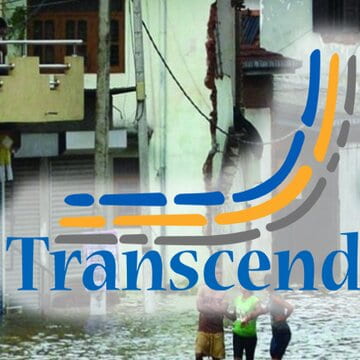PHOTO CREDIT: KAZUHIRO NOGI / AFP

State Politics and Covid-19 Mitigation in Southeast Asia
One year into the Covid-19 pandemic that is disrupting the entire world, some countries seem to be able to contain the spread of Severe Acute Respiratory Syndrome Coronavirus 2 (SARS-CoV-2), while some others continue struggling to flatten the curve in a more severe situation caused by the extreme slowdown of economic activities. What started as an epidemic of public health crisis in Wuhan, China and limited only within the country in late December 2019 has since then developed into a global pandemic crisis as announced by WHO on March 11, 2020. Looking at how each country and its national leaders differ in responding to the Covid-19 pandemic and the impact of mitigation each government has on managing its public health crisis, a compelling question arises: Why are some countries more capable than others for suppressing the virus spread? What do these successful governments have in common that allow them to contain Covid-19 transmission effectively? Prompted by these questions, this research proposal seeks to examine the relationship between state politics and Covid-19 mitigation. We are interested in exploring the ways in which state politics enable or disable mitigation measures organized by the government in battling against the virus. This research project is designed as a comparative study of Southeast Asian countries to examine the interplay between political structures, laws, state capacity and political leadership in dealing with a pandemic crisis. The focus of our comparative Southeast Asian countries study will be on political institution and state capacity in dealing with Covid-19 pandemic crisis.

City Resilience in Expanding Urbans of Southeast Asia
Sulfikar’s Role: Principal Investigator
This research aims to investigate how resilience develops and undevelops across urban contexts. More specifically, it will explore resilience as a sociotechnical phenomenon by examining the interlocking of technological and institutional factors in resilience capacity across megacities in Southeast Asia. In this research, resilience is underscored as an extremely important feature of modern cities. In an age characterized by globalization, unprecedented change, a heightened sense of vulnerability, and large-scale disasters, resilience has become an appealing idea embraced by scholars and policymakers around the world. Within only the past forty years, the United Nations (2017) recorded that natural disasters in the Asia-Pacific region claimed more than 2 million lives, or 56.6 percent of the fatalities globally, and affected six billion people, or close to 90 percent of people globally; over 1.15 trillion U.S. dollars was lost from natural disasters. Three key premises guide the proposed research. First, institutional and physical infrastructures are inextricably intertwined in the production of resilience.
It is posited that resilience does not result only from durability and robustness of physical infrastructures. Nor does it develop simply from organizational competence and institutional solidity. Rather, it is a characteristic that embodies institutional and physical capacity for dealing with crisis and disturbance. Second, resilience is not a permanent condition or ability, but it is a dynamic process, which depends on seamless integration and productive interaction between the social and technical entities that constitute built-in environment. Lastly, patterns to develop city resilience vary across contexts. This implies that there is no single path toward resilience because it is constructed by different arrangement of social organizations and technological apparatuses.
Funding: Singapore Ministry of Education, Academic Research Fund (MOE AcRF) Tier-1
Period: November 2019 – October 2022

Cool Infrastructures: Life with heat in the off grid city
Sulfikar’s Role: Collaborator
PI: Dr. Jamie Cross (University of Edinburg, UK)
Rising temperatures in cities make access to cool infrastructures a global challenge. The UN’s ‘Cooling for All’ coalition estimates that 1.1 billion people worldwide have little or no access to cooling to protect them against extreme heat. Those defined as most at risk include 630 million people across South Asia, South East Asia and Sub Saharan Africa who live in poor quality housing on low incomes, with limited, intermittent or insecure access to electricity and few if any electrical cooling appliances. Current global and national frameworks for action on heat in global cities categorise the negative effects of heat on these urban residents as either a public health issue (i.e. leading to heat illness, dehydration and disease) or an economic issue (i.e. leading to a decline in employment, worker productivity and output). Yet this categorisation significantly limits the way that frameworks for action on heat account for socio-economic inequality and gender. Over 36 months, this project will put ‘access to cooling’ at the centre of a major new interdisciplinary and comparative study of human-infrastructure interactions in ‘the off-grid city’. The projected effects of 2-4 degrees C global heating on cities make the impact of uneven grids for energy, water and transportation on cool infrastructures and practices an urgent arena for scholarship. Against this backdrop, human-centred approaches to the study of energy infrastructures have the potential to make a major contribution to action on overheating by transforming the way cooling needs and capacities are understood at the global, national and city level; by establishing cooling as social as well as technical; and by promoting sustainable interventions. Our research will take place in four cities – Hyderabad (India), Karachi (Pakistan), Yaoundé (Cameroon) and Jakarta (Indonesia) – enabling us to develop the first globally comparative study of cool infrastructures across the Global South. These four cities are critical global sites for research on heat and cooling. India, Pakistan and Indonesia are home to three of the nine largest low income urban populations in the world currently facing heat related risks. Cameroon is home to two of the twelve fastest growing urban populations facing heat related risks in Sub Saharan Africa. In each location, post-colonial patterns of urban growth, increasing population density, and pressures on infrastructures for water and energy are compounding the effect of ‘urban heat islands’, exacerbating the risks from heat for marginalised people, especially women, and shaping the specific context in which people negotiate access to cooling. Comparative research will allow us to bring these practices into relief, whilst building new South-South partnerships between cities (like Karachi and Hyderabad) in which extreme heat is attracting urgent attention in the present and cities (like Jakarta, Yaoundé) in which action on extreme heat is being deferred into the future.
Funding: UK Research and Innovation
Period: April 2020 – March 2023
More information here.

Covid2020
This project began in response to the Covid-19 pandemic. Specifically, it focuses on the virus outbreak in Indonesia, which belatedly confirmed its first infection cases in March 2020. The project consists of a series of works that aim to examine how communities and institutions in Indonesia have responded to the crisis. Using a variety of approaches, both quantitative and qualitative, the goal of this project is two-fold. On one hands, it aims to investigate how government measures are limited in impact by institutional and political constraints, and to measure how the risk of Covid-19 is perceived by urban population across cities in Indonesia. On the other hand, the project seeks to develop new approaches to mitigate the impact of pandemic.
See full project here.

Technology Enhanced Stakeholder Collaboration for Supporting Risk-Sensitive Sustainable Urban Development (TRANSCEND)
Sulfikar’s Role: Scientific Advisory Committee
PI: Prof. Terrence Fernando, THINKlab, University of Salford.
The aim of the TRANSCEND project is to investigate the nature of a sociotechnical system, enabled by a collaborative foresight and consensus building virtual workspace, which can promote an adaptive governance approach across relevant organisations and support the transparent and democratic involvement of all the relevant stakeholders (including experts from local authorities, disaster management authorities, developers, poor and vulnerable communities, and humanitarian organisations) to analyse, forecast, visualize and debate disaster-risk trade-offs and to choose development plans that ensure sustainability and equitable resilience, giving considerations to climate change adaptation. A systemic approach that explores various system “views” of this sociotechnical system will be adopted in achieving this aim.
Funding: UK Global Challenges Research Fund (GCRF)
Period: 2019-2022.

Sociotechnical Resilience (Future Resilient Systems)
Sulfikar’s Role: Principal Investigator
Lead PI: Prof. Hans Heinimann (ETH Zurich)
This project is part of Future Resilient Systems, a large-scale research programme aiming to study resilience across urban infrastructures. The project examines the impact of sociotechnical structures on the capacity of systems to withstand disruption and bounces back from crisis. Resilience is defined both as the capacity to quickly respond to disturbance, and the adaptive ability to learn and transform. The project consists of two parts: (1) organizational interdependencies, and (2) sociotechnical modelling. Using the concept of sociotechnical resilience, 2 cases were studied. One is a public security organization, the other is the hospital network. A mix of qualitative and quantitative methods were employed in conducting this project, including in-depth interviews, surveys, social network analysis, and agent-based modelling.
Funding: Singapore’s National Research Foundation and Singapore-ETH Center
Period: November 2014-October 2019